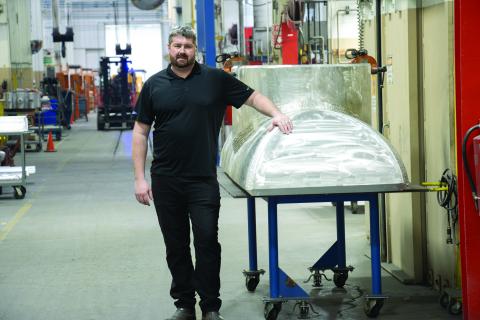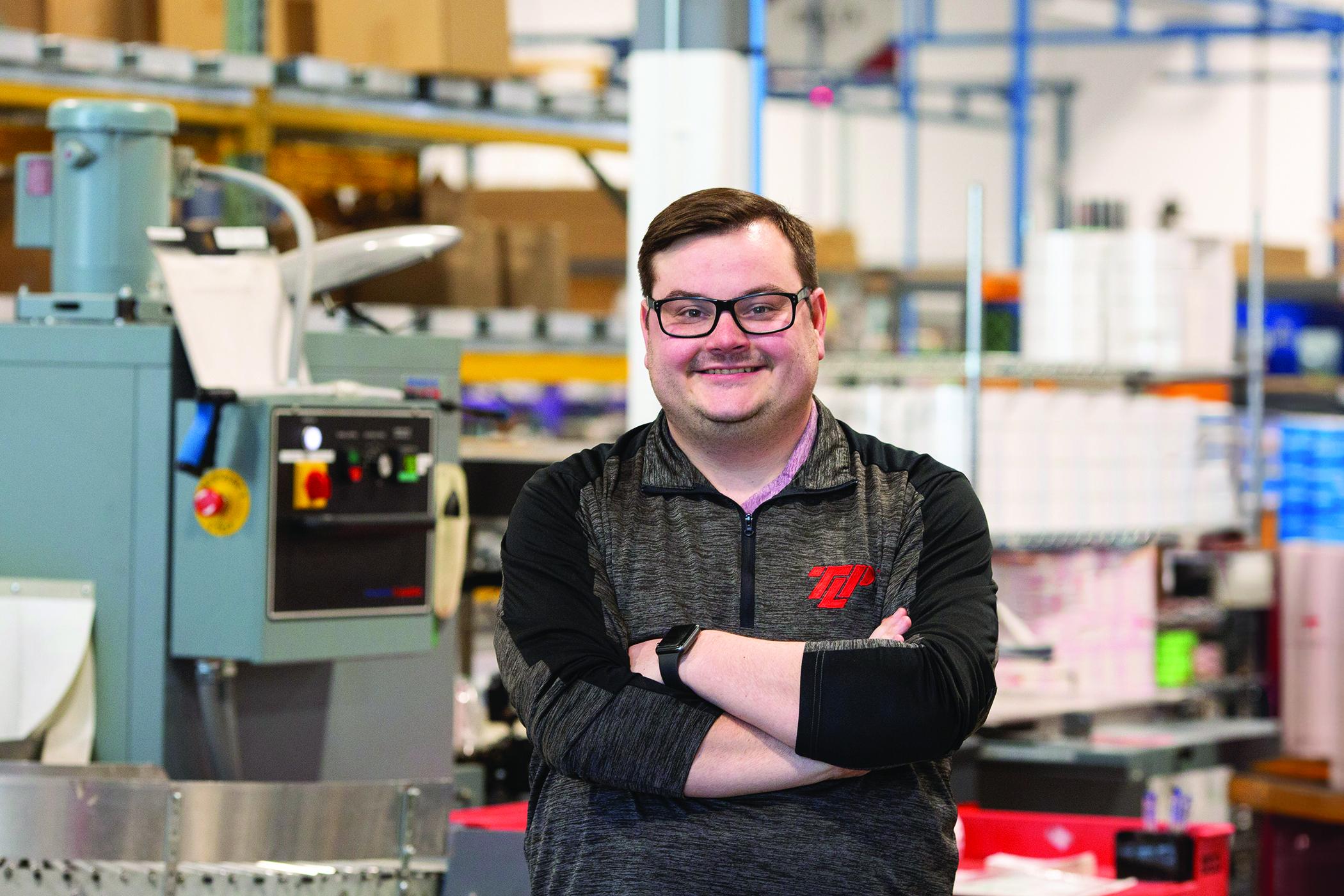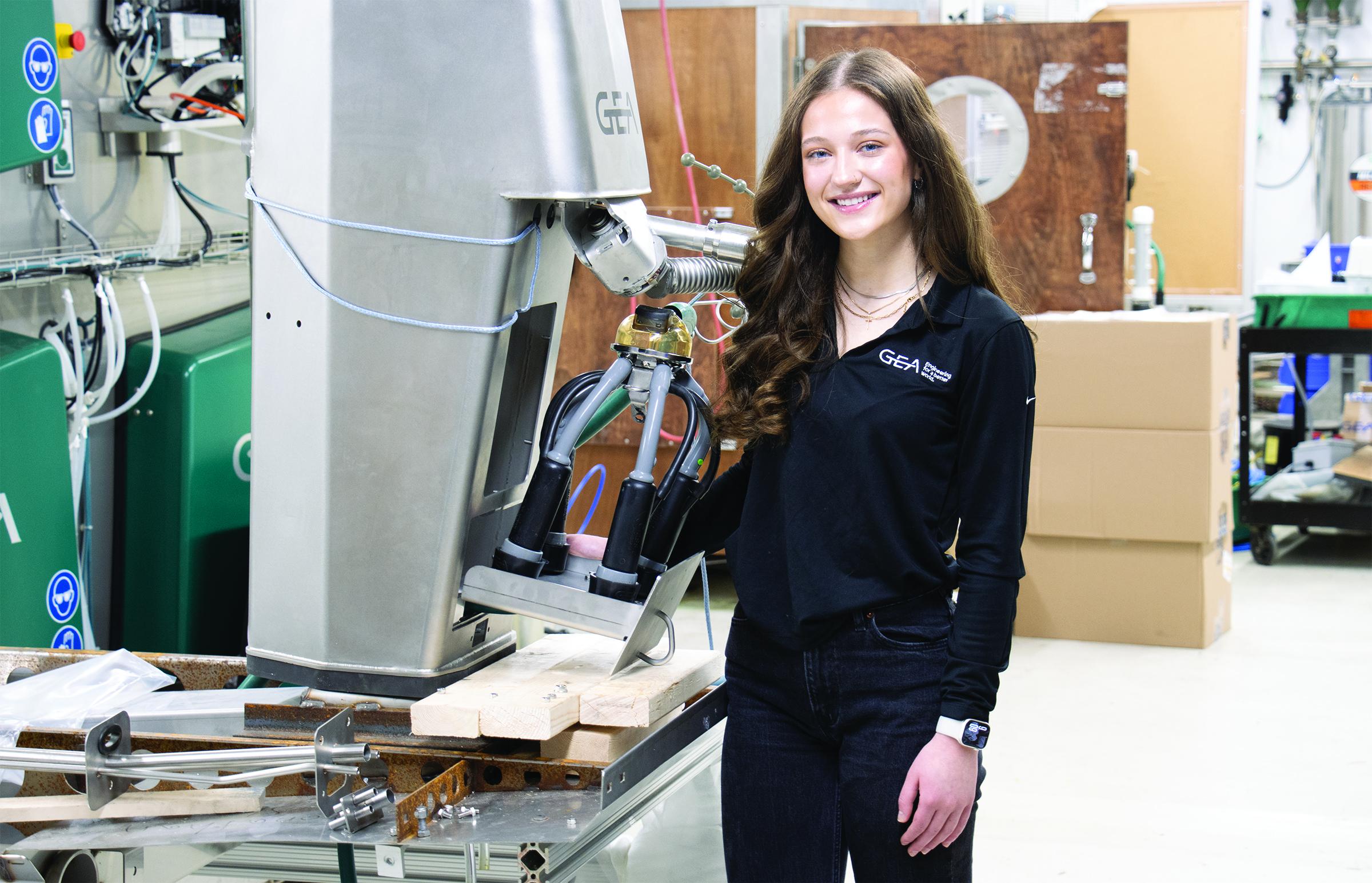Gordon Murphy took a slightly different path to Viterbo University and an engineering degree than many students.
Starting as a machinist at Chart in 2012 and eventually working his way up to tool maker, Murphy later wanted to make himself even more valuable. To accomplish this, he enrolled in Viterbo’s engineering program. The university being local was key in his decision to attend.
It certainly wasn’t easy working full-time, attending college, and participating in an internship with Chart before starting his tool maker shift in the afternoon.
“It was a grueling schedule, and my wife and I joked that she was a single mom, but it was worth it,” said Murphy about earning his degree, which resulted in a new career with “increased compensation, greater career flexibility, and plenty of room to grow. There is no shortage of work.”
Murphy is now a manufacturing engineer with Chart Industries, where he is responsible for the heat transfer fins on the company’s braised aluminum heat exchangers. The exchangers are used in natural gas processing and other energy industries, rocket fuel cooling for NASA and SpaceX, and in the production of liquified oxygen and nitrogen.
“We like to pat ourselves on the back that we’re the best in the world, but there are still a lot of things we want to make even better,” Murphy said.
Murphy’s favorite class at Viterbo was Vanderfleet’s Fluid Mechanics course, which covered things such as water pressure and hydrostatics. He felt extremely well prepared on the technical aspects of engineering when he began his new career, and is now learning as much as he can about the business/corporate accounting aspect of the position.
“Starting as a machinist gives me more hands-on experience and more knowledge on the mechanical side of things,” he said. “They say kids who play with Legos make the best engineers.”
Explore the Program
Discover how Viterbo’s engineering program connects you with real-world experiences, preparing you for a purposeful career in a dynamic field.



